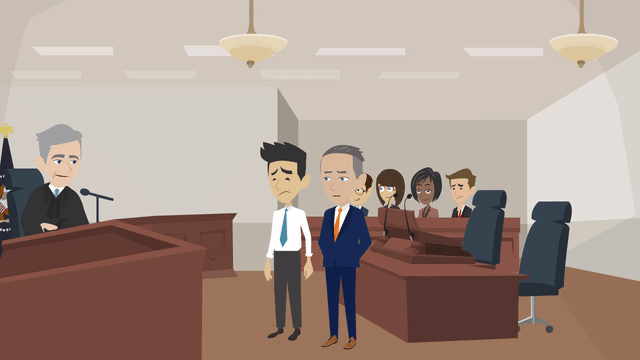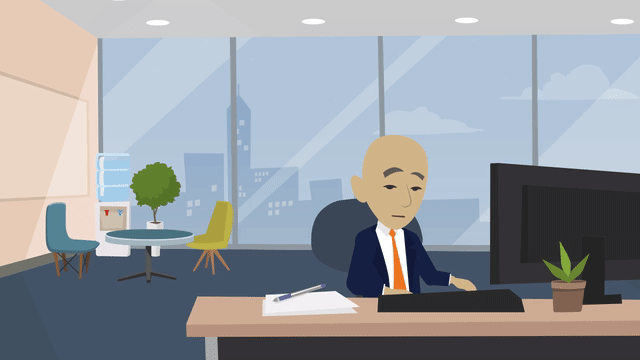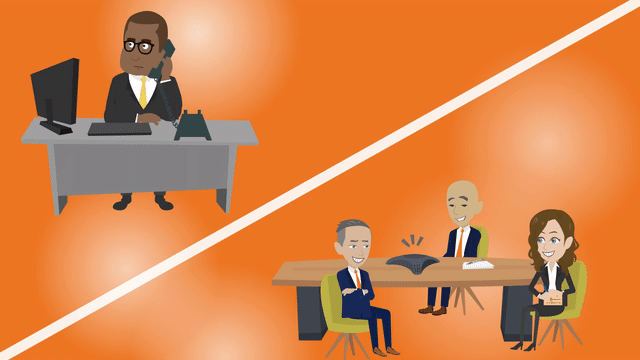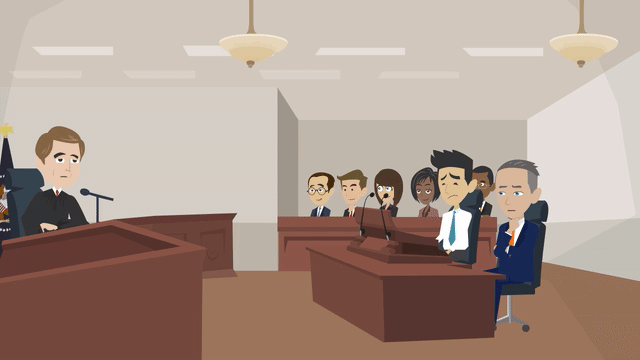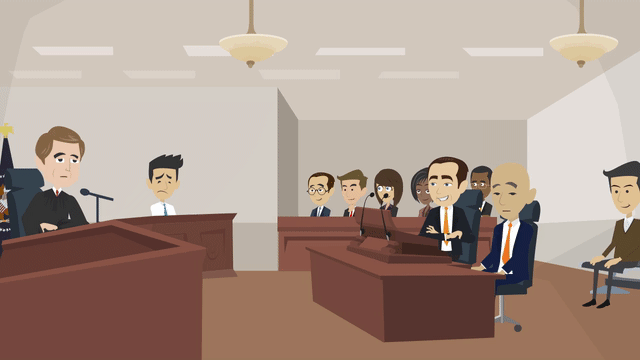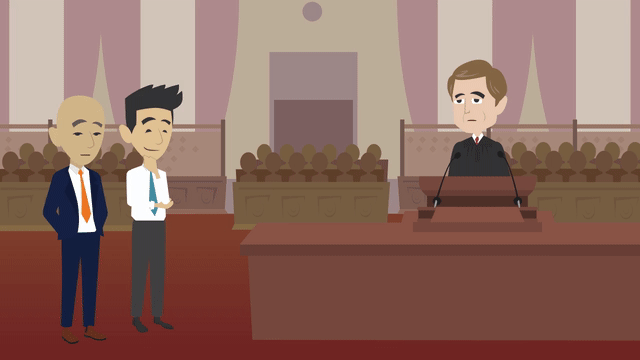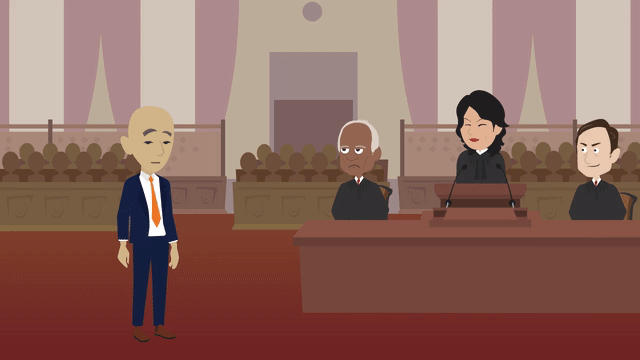Orders Of Protection | Lawyers & Attorneys
What Does It Mean If I Have An Order Of Protection Against Me?
If you have an order of protection against you this means a Judge has ordered you to have no contact with the protected party. Thus, first and foremost you must avoid any contact with the person who the order is intended to protect.
While cases vary, there are 3 main requirements of an order of protection.
1. What is a stay away provision in the Order of Protection?
This provision requires you to stay away from the alleged victim or victims. This includes not just the person, but their home, school, or employment.
The order or protection limits what you can do, not the other person. As an example, if you are out grocery shopping and see the protected person, the responsibility is on you to immediately leave the area. The protected person is not under under any obligation to do so and even if you had no intention of seeing them at the store, if you stay there, you may be violating this provision.
2. What is the no communication provision in the Order of Protection?
This provision requires you to have no contact with the alleged victim or victims, otherwise known as the protected party. This includes every way you can imagine including talking, texting, skyping/zoom, any social media (Facebook, Instagram, Tik-Tok, Snapchat, etc.) including leaving comments, leaving phone messages, and sending mail or e-mail.
Also, you cannot have any “third party contact”. As an example, you cannot ask your friend to go and talk to the protected party for you or to deliver a message for you. Doing this would also violate the order of protection.
3. What is the no bad acts provision in the Order of Protection?
This provision usually lists a very long list of acts that you cannot commit against the protected party such as: assaulting, kidnapping, harassing, stalking, etc. Everything on this list is already something you cannot legally do to anyone. However, this provision increases the potential penalties you now face if you commit these acts against the protected person.
As an example, if you assault someone while an order of protection is in place to protect that person, you will not only face a misdemeanor charge of assault, but you will also face additional and more serious charges, including a felony for criminal contempt.
Frequently Asked Questions About Orders Of Protection
Our criminal defense lawyers provide answers to some important questions below.
Orders of Protection are orders issued by a Judge. They are not orders by law enforcement, district attorney’s offices, or the person whom it protects but an Order of Protection is often requested to the Judge from one of these individuals. Just like any other order a Court makes, only a Court may amend, remove, or otherwise alter or modify its contents.
In New York, Orders of Protection can only be issued in criminal court or family court. Family Court Orders of Protection often have identical types of terms and conditions as criminal orders of protection.
Orders of Protection may be temporary or final. Temporary Orders of Protection typically are issued when someone is arrested for a crime that involves a victim. These types of orders usually last as long as the case against you is pending. At the conclusion of your case, the order is either dismissed or it becomes final, depending on the outcome of the charges against you.
All Orders of Protection have an expiration date, even those called “permanent” or “final”.
An order of Protection on a violation can last up to 2 years from the date of sentence or 2 years from release of incarceration.
An Order of Protection on a misdemeanor can last up to 5 years past the maximum jail sentence or 5 years from the date of the sentence if there was no jail. On a sexual assault case the Order of Protection can last up to 6 years from the date of the sentence/ release from incarceration.
An Order of Protection on a felony conviction can last as long as 8 years past the maximum prison sentence imposed or ten years from the date of the sentence.
An Order of Protection is issued by a Judge and therefore, only a Judge can change the Order of Protection. If the protected person does not believe they need the order or do not wish to have it any longer, they should speak to the district attorney’s office, a victim advocate at the district attorney’s office, or to the Judge directly on a scheduled court date. However, until a court formally lifts or cancels the order, you must comply with the order.
If the protected person comes to your workplace, or reaches out to you, you must avoid any contact or communication with them. You may wish to block them on social media or on your phone.
If that does not stop the behavior, you should talk to your attorney about what you can do. If you are in fear for your safety or believe you are now the victim of a crime, you may wish to contact law enforcement to file a complaint against the other party.
Yes. There are some Orders of Protection that allow parties to have contact with each other. This type of Order of Protection is often referred to as a “refrain from” or No Illegal Contact Order of Protection. This type of order is rare. It’s an Order that says you must refrain from committing any crime against the other party. Before you have contact with the protected party, you must confirm that the order issued against you allows it.
The actions the Order of Protection prohibit include any contact, even if you feel its nice, friendly, or apologetic. As an example, if the person texts you “I’m sorry, I hope we will be ok.” And you respond, “I’m sorry too,” you have committed a crime. Remember, the order is not against them, so they have committed no crime. That may sound harsh or unfair, but it is an order from the court that you must comply with. Any attempt by the protected person to contact you in any form, should be documented and ignored. Violation of a court order is a very serious crime. Even if you want to make up, you cannot have any contact with the other person until the Order of Protection is amended or lifted.
There are any number of other provisions an order may contain, so it’s important you understand those as well. Importantly, regardless of what provisions it contains, it is a federal crime to possess a firearm when there is an order of protection against you.
It does not matter whether:
- the order is temporary or final;
- what provisions it includes;
- it is a criminal or family order of protection;
- the firearm is not owned by you;
- the firearm is subject to licensing requirements;
- the order is from a local or state court.
If you own any firearm at the time an order of protection is placed against you, you must immediately transfer them out of your possession, usually within 24 hours. As long as the order is in place, do not go target shooting or hunting.
Timeline of a Criminal Defense Case
- Whether you just made a big mistake, or are being falsely accused, this can be a very emotional and important time in a case
- It is very important that you remain silent and not answer any questions about the case without a lawyer present
- Contact a criminal defense attorney as soon as possible
- Confirm the lawyer is an experienced criminal defense lawyer
- Meet with the lawyer who will help you understand the process of a criminal case
- If you have been arrested, critical proceedings and time frames begin immediately
- You will appear before a judge who will determine if you will be incarcerated, released on bail or supervision, or released without conditions
- If you are charged with a felony in a town, village or city court, the prosecuting agency will have six months from the date of your arrest to determine whether to present your case to a grand jury to seek an indictment or return your case to a lower court to be handled as a misdemeanor
- Discovery is the exchange of information between the governmental agency prosecuting you, you, and your attorney
- In New York State this process begins shortly after your appearance in court
- You can expect exchange of the following if it exists in your case:
- Police Reports
- Investigative Notes
- Videos / Body Camera Footage / Dash Camera Footage
- Forensic Reports
- Photographs
- Exculpatory Material (Brady)
- Impeachment Material
- You and your attorney may also be engaged in information gathering that includes:
- Freedom of Information Law (FOIL) Requests/Responses
- Additional Witness Interviews
- Expert Evaluations / Disclosures
- Motions are written applications to the court to request any of the following:
- Preclude Evidence
- Suppress Evidence
- Seek a Ruling on a Constitutional Rights Violation
- Seek Outright Dismissal of One or More Charges Based on Legal/Factual Matters
- Request Hearings
- A plea bargain is an offer from the prosecuting attorney to resolve your case
- Whether to plead guilty or not is always a choice you get to make, not your attorney
- Your attorney will meet with you, discuss the facts and the law of your case, and offer advice. A plea offer takes into consideration your charges as well as:
- Prior criminal history if any
- Life experiences
- Evidentiary Problems
- Post-Incident Actions
- Mental Health Counseling
- Substance Abuse Treatment
- Anger Management Treatment
- If you choose not to accept a plea bargain and are heading to trial, there are likely to be hearings to consider the following:
- Preclusion/Suppression of Evidence
- Admissibility of Evidence
- What Prior Criminal History/Bad Acts May Be Introduced by the Prosecutor if You Testify on Your Own Behalf
- During a hearing, there is no jury, and the judge will make factual and legal determinations regarding what evidence will be allowed at trial.
- You have the right to a trial by a fair and impartial jury or by the judge who will act as both judge and jury
- At a trial, the prosecution has the burden to prove your guilt beyond a reasonable doubt
- The judge or jury will listen to the evidence presented and the arguments by the lawyers, apply the facts to the law, and render a verdict of not guilty or guilty
- A Verdict must be unanimous
- If you are convicted at trial, or if you entered a plea bargain, there will be a sentencing date where your punishment will be imposed by the judge
- If you previously entered a plea bargain, the judge will likely impose the agreed upon sentence at that time
- In the event you are convicted, you have the right to appeal
- This is true whether you plead guilty or are convicted after trial
- However, by accepting a plea bargain, you may have waived some of your appellate rights
- It is important that your attorney file a notice of appeal on your behalf and that you discuss the appeal process with your lawyer
LaMarche Safranko Law Testimonials
“Dear Andrew and George,
I cannot thank you enough for your hard work, diligence, and selfless manner that you put towards my legal difficulties in Colonie. From the first moment I met you, you helped reassure me that things were going to turn out in a more favorable manner than I originally thought. Clearly, the final result of my court case displays the quality of time and work that you put into this….
“I cannot thank George E. LaMarche lll and his team for the excellent legal work they provided for my son, and in extension, our entire family. His experience, knowledge of the law, networking ability and communication is second to none. In our case, our son was wrongly accused by a small town police officer and charged with 5 tickets…
“The arrest of my husband in 2008 was an extremely difficult and emotional time for our family. The arrest turned our lives upside down. It was sudden and unexpected and had tragic emotional as well as financial consequences. I had no idea what to do under the circumstances….
“No one likes to be in a bad situation, but if you need a lawyer George is your man. Not only does he point you in the right direction he offers good advice for your future. As much as we bring him business he does not encourage that next time anticipation….
“Dear Mr. Safranko,
Thank You so much for answering my question, and so expediently!
The dedication, respect, and consideration with which you treat your clients, current and past, is remarkable. It is why I reached out to you when searching in my time of need, and why I would highly recommend…
“Throughout the attorney client relationship regarding my personal injury lawsuit, George and his staff continually exhibited tremendous amounts of legal knowledge, skill, and a vast amount of expert resources that ultimately resulted in a final judgment in my favor. George was there every step of the way to explain where we stood and what to expect next and there was never a need to question his professional judgment…
“My family and I cannot thank George and his staff enough for all of the support and guidance they have given us over the past six months. Anyone who has ever suffered a personal injury knows how difficult they are to overcome, but I’m glad we had such an intelligent and hardworking attorney on our side so I could focus on my recovery rather than on the details of the case….
“I am an attorney who found himself in the middle of a serious, personal legal matter that compromised not only my personal life but my professional life as well. I immediately contacted Andrew (Andy) Safranko, Esq. Andy worked tirelessly and extremely hard to bring my legal situation to a very favorable resolution. In so doing, Andy not only saved certain aspects of my personal and professional life…
“The staff at LaMarche Safranko Law took care of whatever I needed, it was just fabulous. It was top shelf, if I called, I got George. If he was in a meeting, they left him a message. He called me right back after the meeting. Everybody was very courteous and very nice there. If I left a voicemail, everybody got back to me quickly. The level of service was very, very good and I would Highly recommend them.”
“Dear George, Andy and Staff,
Thank you all for your kindness and all your help in getting back to my wellbeing and life. I could not have done it without you all. Everything is going so well again. I recommend you highly. Thanks Again!”
“I can honestly say that the best decision I’ve ever made was retaining George LaMarche as my attorney. I was in a situation where everything wasat risk; my career, livelihood, and the ability to provide for my family. In desperation, I contacted over a dozen attorneys. The majority of the lawyers I spoke with promised results without seeing paperwork or knowing valuable facts….
“I wanted to take this opportunity to thank you for your excellent representation on my recent matter. I have worked with lawyers, and in law firms much of my professional life, but I have never encountered the rare mix of skill, integrity and humanity in one individual—you….
“Dear Andy,
Thank you so much for everything you have done for our son over the last three years. This has been a very challenging time for our family and the knowledge that our son has an attorney as capable and amazing as you are has given us peace of mind!
“I wanted to express my deepest appreciation to Mr. Andrew Safranko for the exceptional job he did in regards to my legal representation. Mr. Safranko displayed the utmost in professionalism and discretion during the entire court process, and took the time to explain each and every step….




